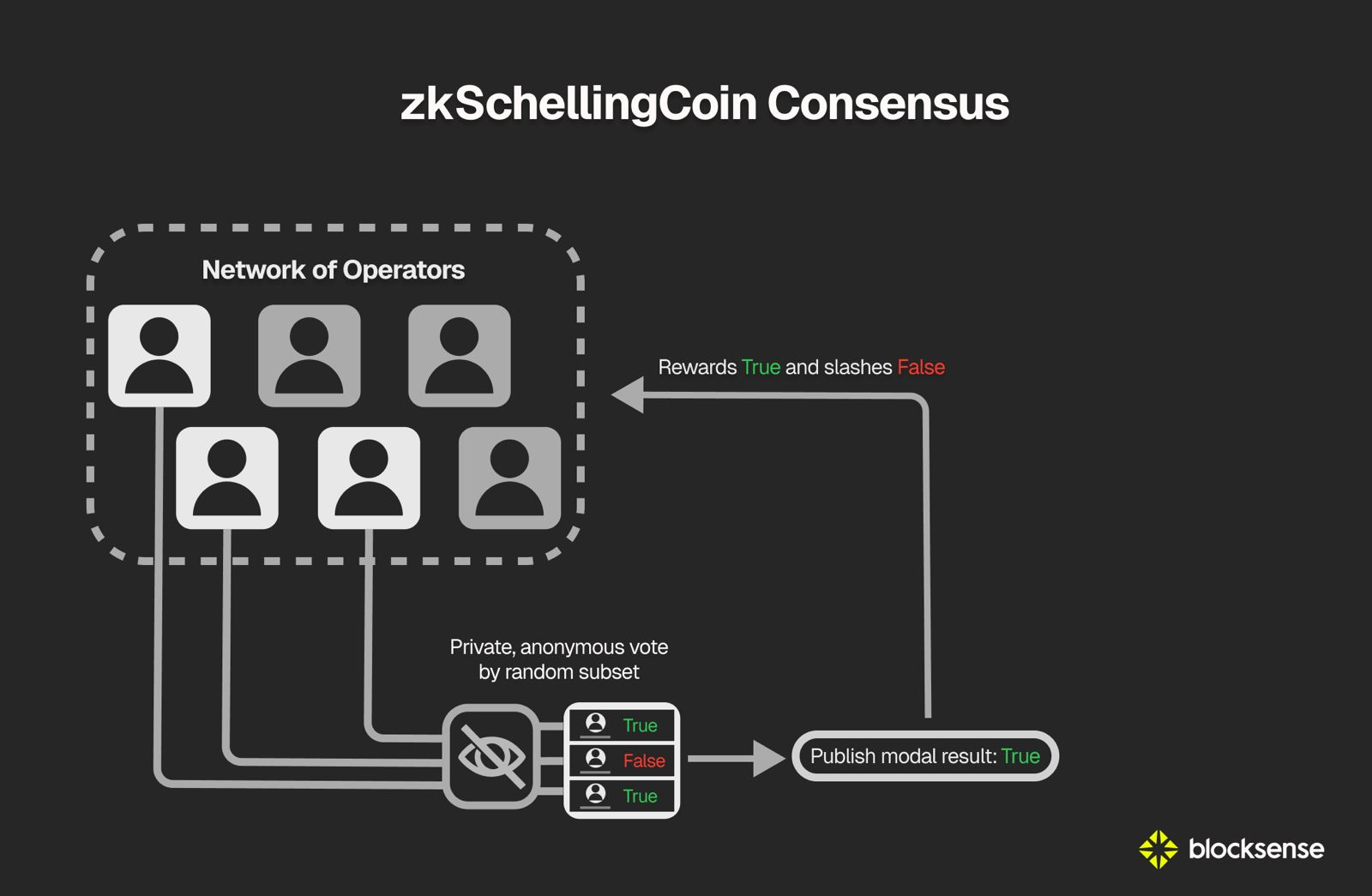Uncategorized
From Hype to Reality: 2025’s Emerging Innovations in DePIN and AI

DePIN: decentralized physical infrastructure networks
While DePIN projects, in theory, attempt to provide real utility to crypto, there are few that truly solve real-life problems, have a sensible business model capable of disrupting existing companies and cannot be easily spoofed. Most are simply solutions in search of a problem. One notable exception is a flight-tracking network called Wingbits. Why? Because it addresses a Web2 problem by solving it with Web3 incentives. For anyone who has ever tracked a flight such as BA117 from London to New York, you may have used websites like FlightAware or Flightradar.

Figure 1: Wingbits flight tracking map
Source: Wingbits — Transforming Flight Tracking.
Flight-tracking companies generate millions in revenue by selling flight data to aviation companies and to buyers like financial analysts who monitor private jet movements for mergers and acquisitions. These companies also earn revenue from ads and subscriptions on their platforms. However, their capital expenditure does not include significant infrastructure and hardware expenses. This is because the aviation surveillance technology, called ADS-B receivers, is a hardware which requires antennas and Raspberry Pis, purchased and configured by aviation enthusiasts. These enthusiasts expect little in return, often receiving just a free subscription to their favourite flight-tracking platform.
The main problem is that enthusiasts are not incentivized to maximize the quality of data for these networks. Without marginal incentives, ADS-B receivers are often poorly placed — for instance, in lounge room corners or oversupplied in densely populated urban areas, leading to weak coverage in rural regions.

Figure 2: (LHS) Traditional ADS-B receiver, (RHS) Wingbits miner
Source: Wingbits — Transforming Flight Tracking.
Wingbits is revolutionizing flight tracking by incentivizing enthusiasts to set up stations strategically, based on altitude, while utilizing a system similar to Uber’s hexagonal hierarchical spatial index. This approach ensures optimized coverage, higher-quality data and most importantly, fair rewards for contributors to the network. They achieved coverage of 75% of the largest networks with only 1/11th the number of Wingbits stations. This high level of efficiency, combined with an expected rollout of 4,000+ stations, is anticipated to surpass traditional flight-tracking networks by a significant margin, delivering better-quality data to end customers.
The next family dinner conversation explaining this concept will come easily as we can now point to a real-world use case, driven by crypto incentives, that everyday people can understand.
Crypto x AI
Similar to market cycles, the demand for compute experiences peaks and troughs. GPUs can be expensive, and supply constraints make them even more so. Unlocking idle compute on consumer devices is not a new concept, but solving the synchronization challenge across multiple devices is. Exo Labs is a pioneering project achieving breakthroughs in edge computing, enabling users to run models on everyday consumer-grade devices, such as household MacBooks. This means sensitive data remains under your control, reducing risks associated with cloud-based storage or processing.

Figure 3: A 9-layer model is divided into 3 shards, each running on a separate device
Source: Transparent Benchmarks — 12 Days of EXO, EXO Labs.
Exo Labs has developed a novel software infrastructure called pipeline parallel inference, which enables a large language model (LLM) to be split into “shards,” allowing different devices to run separate parts of the model while remaining connected over the same network. This approach offers various advantages such as reduced latency, enhanced security, cost efficiency and most importantly, privacy benefits.
Exploring privacy further reveals Bagel AI, a project that has developed ZKLoRA (Zero-Knowledge Low-Rank Adaptation), a privacy-preserving approach to fine-tuning LLMs. This innovation enables the creation of specialized models for industries like legal services, healthcare and finance, allowing sensitive data to be used for reinforcement learning without risking confidential information leaks.
While privacy preservation is a hot topic, a bigger challenge for most LLMs is the hallucination problem, a response generated by AI that contains false or misleading information presented as fact. A portfolio manager once told me, “Wisdom lies in synthesizing competing viewpoints to uncover the nuanced truth between two extremes.” Blocksense is a project that has developed a proprietary approach called zkSchellingCoin consensus. This method aims to overlay subjective truths from multiple sources – say, different LLMs – to arrive at a single, common truth. For example, imagine running the same query across ChatGPT, Claude, Grok and Llama. If one model provides an incorrect output, it is statistically unlikely that all four models will generate the same false result when compared against each other.

Figure 4: Overview of the zkSchellingCoin Consensus
Source: Blocksense Network — The zk Rollup for Programmable Oracles.
The zkSchellingCoin consensus could also be applied to adding verifiability to AI inference. For instance, how can we confirm that an AI agent correctly bridged USDC into the highest-yielding vault at the time of execution? Trust in AI would be significantly strengthened with an additional verification layer. If we can solve this without compromising cost or latency, it could lead to a major breakthrough in real-world use cases.
The journey from hype to reality in DePIN and AI shows that genuine innovation lies in solving real-world problems with practical and efficient solutions. Projects like Wingbits and Exo Labs prove how blockchain and AI can create meaningful impact — whether by revolutionizing flight tracking with strategic incentives or unlocking the power of consumer devices for secure and cost-effective computing. With advancements like ZKLoRA for privacy-preserving AI and zkSchellingCoin for verifiable truth, these emerging technologies are poised to address critical challenges, paving the way for a more decentralized, efficient and trust-verified future.
Uncategorized
Trump’s Memecoin Dinner Questioned by Top Democrat on House Judiciary Committee

A senior Democrat in the House of Representatives, Jamie Raskin, joined his name to lawmakers seeking answers about President Donald Trump’s recent dinner for top investors in his memecoin, sending questions directly to Trump.
Raskin, the ranking Democrat on the House Judiciary Committee, has been a vocal critic of the president and becomes the latest of many from his party to probe details about the event, which they’ve called out as evidence of White House corruption. Because Raskin is in the minority party, his demands are unlikely to lead to further congressional action unless they regain the House or Senate in next year’s elections.
«I write today to demand that you release the names of all the attendees at this dinner and provide information about the source of the money they each used to buy $TRUMP coins, so that we can prevent illegal foreign government emoluments from being pocketed without congressional consent,» Raskin wrote this week to the president, joining many counterparts in the Senate in seeking the information, including Senators Elizabeth Warren, Chris Murphy and Richard Blumenthal.
«We deserve to know who is paying for access to our president, and what steps you took to ensure that the funds you receive are legitimate and legal, rather than the proceeds from foreign states or monarchs or illegal activities,» Rasking said, specifically highlighting Tron founder Justin Sun, a guest who was a major early investor in Trump’s family crypto operations.
Read More: Democrats Threaten Lawsuits, Join Protests Ahead of Trump Memecoin Dinner
Uncategorized
FTX Repayments May Have Positive Market Impact: Coinbase

The FTX Recovery Trust will begin distributing over $5 billion in cash and stablecoins to creditors starting on Friday, with funds expected to land in accounts within the next three business days via BitGo and Kraken.
And there’s a chance this wave of repayments will help lift the crypto market, analysts at Coinbase wrote in a report on Friday.
It’s the second major round of repayments following the exchange’s collapse. The first, which began on Feb. 18, returned roughly $7 billion to creditors with claims under $50,000. That did little to lift broader crypto markets at the time, which remained under pressure from macro headwinds.
This latest wave of distributions comes as investor sentiment has shifted, the analysts said. Payments will arrive in stablecoins, offering recipients immediate on-chain liquidity, instead of cash and crypto. That could influence whether the funds are reinvested.
There’s also a broader sense of optimism in crypto markets, thanks in part to a rally in major assets and increased political clarity around regulation. Institutional players, in particular, may feel more comfortable acting on incoming funds, especially as Congress moves closer to passing legislation that would define the roles of U.S. regulators overseeing digital assets.
Uncategorized
Judge Declines to Order DOJ to Review Records in Roman Storm Case

The federal judge overseeing Roman Storm’s prosecution declined to order the Department of Justice to review its records for any materials it might have missed that would help the Tornado Cash developer at the end of a 30-minute hearing Friday morning, though she told the government it should not have any disclosure issues.
Judge Katherine Polk Failla also ruled that there were no Brady violation concerns with the Department of Justice’s conversations with the Financial Crimes Enforcement Network (FinCEN) about whether mixers needed to register as money transmitters — the conversation that prosecutors pursuing Samourai Wallet developers had with FinCEN officials, but not the prosecutors on Storm’s case — one of the DOJ representatives said in the phone conference on Friday.
If the judge had found that prosecutors had withheld information, it could affect the case moving forward.
«I’m not going to require a further review based on the representations made that there’s no additional material of this type, and based on my views that I don’t believe the material was exculpatory,» she said.
«There’s a difference between ‘this is something I’d like to know’ and ‘this is a Brady violation,'» the judge said, referring to a Supreme Court precedent that requires prosecutors to share any and all information that might help a defendant with the defendant’s team.
Storm’s defense attorneys argued during the hearing that they needed to know when the prosecutors in their case learned about the FinCEN conversation.
«They do plan to say they’re charging a conspiracy to operate an unlicensed money transmitter,» said defense attorney Brian Klein. «My question is who are they supposed to be licensed with? … this is all in the same issue. They’ve only dropped one subpart … but they’re still going to say they’re charging an unlicensed money business.»
Thane Rehn, a prosecutor who worked on the DOJ case against Sam Bankman-Fried, said that his team wouldn’t argue that Tornado Cash needed to secure a license.
«The word ‘license’ doesn’t apply here and the jury won’t be instructed on licensing issues … what we intend to prove at trial is the defendant knew they were transmitting funds derived from criminals,» he said.
The judge did at multiple points ask the prosecutors if they planned to change any other theories or charges in the weeks leading up to the trial, saying doing so might be unfair to the defense. The trial is supposed to kick off in less than two months.
Read more: DOJ Will Still Pursue Roman Storm Case Despite Blanche Memo, Prosecutors Say
-

 Fashion8 месяцев ago
Fashion8 месяцев agoThese \’90s fashion trends are making a comeback in 2017
-

 Entertainment8 месяцев ago
Entertainment8 месяцев agoThe final 6 \’Game of Thrones\’ episodes might feel like a full season
-

 Fashion8 месяцев ago
Fashion8 месяцев agoAccording to Dior Couture, this taboo fashion accessory is back
-

 Entertainment8 месяцев ago
Entertainment8 месяцев agoThe old and New Edition cast comes together to perform
-

 Business8 месяцев ago
Business8 месяцев agoUber and Lyft are finally available in all of New York State
-

 Sports8 месяцев ago
Sports8 месяцев agoPhillies\’ Aaron Altherr makes mind-boggling barehanded play
-

 Entertainment8 месяцев ago
Entertainment8 месяцев ago\’Better Call Saul\’ has been renewed for a fourth season
-

 Entertainment8 месяцев ago
Entertainment8 месяцев agoDisney\’s live-action Aladdin finally finds its stars





